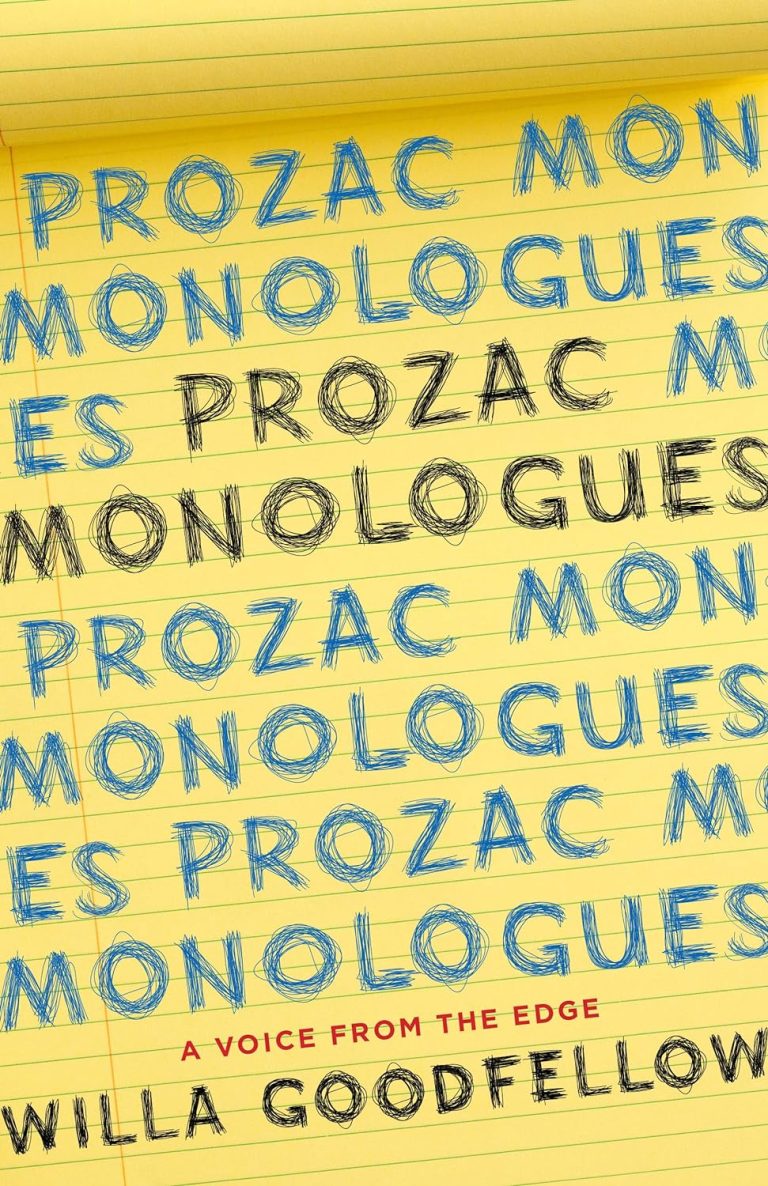Book Clubs
The best book club books provoke discussion. Prozac Monologues fits the bill. Here are some
questions to get you going.
- How do you relate to the way the author presents her problems? What moments stand out for you? What do you think of the opening image of pressing a nail file to her doctor’s neck? If you have never suffered from a bipolar condition, what kept you interested in her story?
- Have you ever found it difficult to talk with your doctor about a problem? What made it hard? Are there ways the doctor can make it easier to discuss difficult topics?
- If you were/are diagnosed with a mental illness, would you want your friends and family to know? Would it make you feel differently about yourself?
- The author uses humor throughout the book, sometimes while describing her darkest moments. Do you ever use humor to discuss hard topics? What are the advantages of the technique? What are cautions that you would recommend?
- Nelson Mandela said “Do not judge me by my success, judge me by how many times I fell down and got back up again.” How do people build resilience? What traits make us more or less resilient?
- If you suspected that “something is wrong” with a friend or family member, how would you address it?
- What was the parenting style of your parents: tight leash, loose leash, long leash, no leash? How did that style influence who you are today?
- The United States and New Zealand are the only two countries that allow pharmaceuticals to be advertised directly to consumers. Do you find these ads helpful? Do you find them harmful?
- If you have experienced depression, how do you describe it?
- If you have a chronic or recurring illness, do you have a name for it? Is it helpful to give it a name?
- What did you learn in the chapters Balancing Act and Wait, wait! There’s More? Were there any surprises? Did this information raise further questions for you?
- If you were offered a great opportunity, what would you not be willing to give up in your life to take that opportunity? What would you not “shed”?
- Have your priorities for your life changed in recent times?
- Pura Vida—pure life, saying yes to life in all its abundance. What do you think about Pura Vida as a life philosophy?
- Some people think recovery means “getting over it” or “getting cured.” That is not how the author describes recovery for serious mental illness. She says she manages her bipolar, more or less. Are you someone who is/do you know other people who are recovering from a mental or physical condition in the same sense? Is it helpful or not to stop looking for the cure and focus on management?
- Do you think these strategies make sense for recovery in mental illness: lifestyle, education and self-awareness, support, medication? Are there other conditions for which people take medication that would benefit from this broader approach?
Willa is happy to attend your online bookclub.
